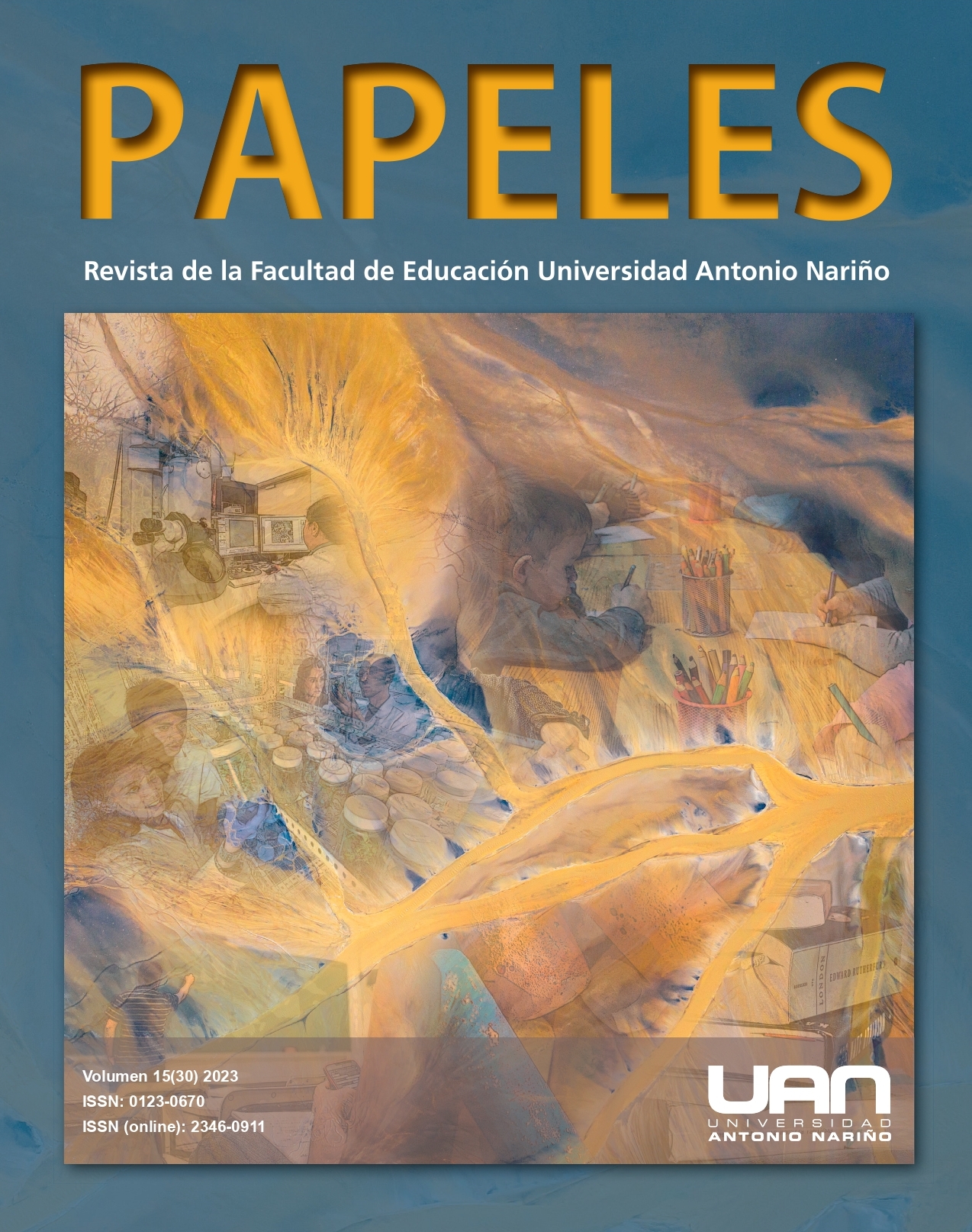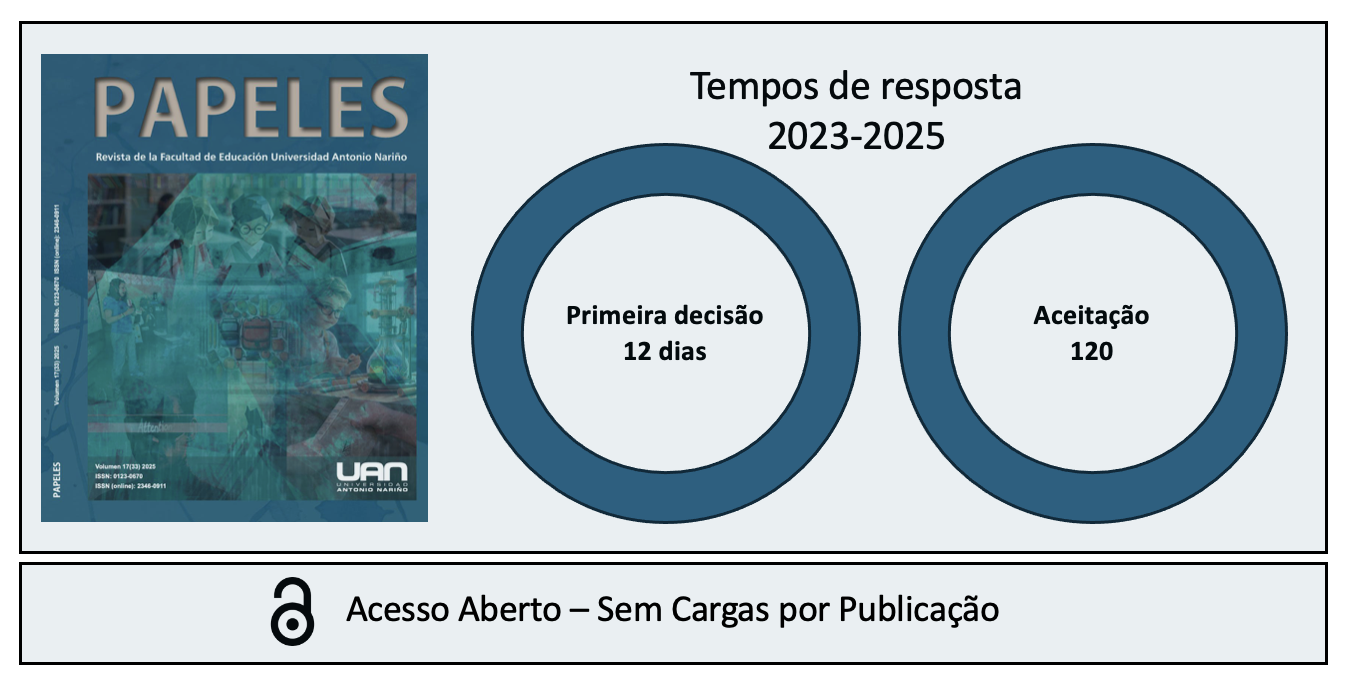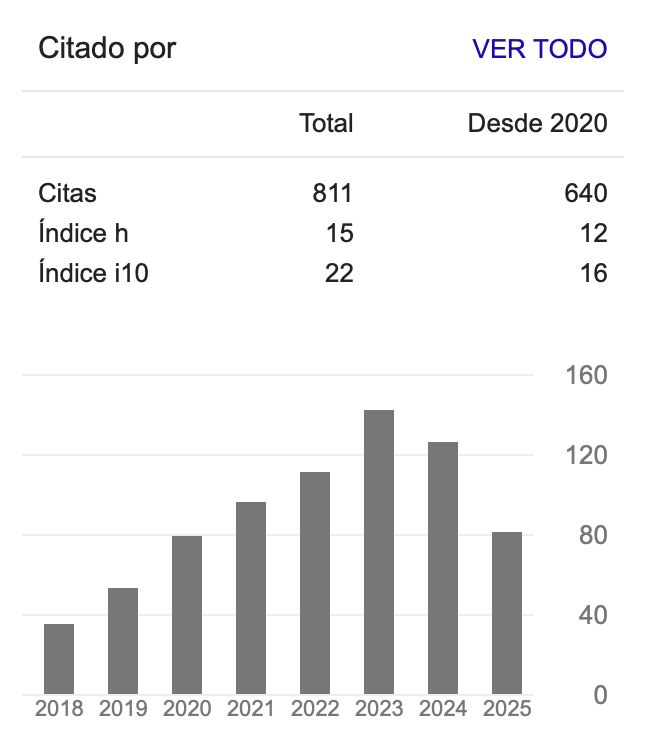Relação entre exercício físico, variáveis mediadoras e dependência de smartphones em escolares: revisão narrativa
Relationship between physical exercise, mediating variables and smartphone addiction in students: Narrative review
DOI:
https://doi.org/10.54104/papeles.v15n30.1600Palavras-chave:
actividade fisica, exercício, telefone inteligente, vício, educação, estudantesResumo
Introdução: a dependência de smartphones está associada a efeitos negativos na saúde psicofísica e no bem-estar social. A atividade física e a dependência de smartphones são consideradas duas variáveis independentes, mas inter-relacionadas em termos de saúde. Sua possível conexão foi explorada propondo como a atividade física, o exercício físico ou a participação em esportes podem ser usados como estratégia de intervenção para tratar esse vício. O objetivo é realizar uma revisão narrativa da literatura sobre as relações entre atividade física ou participação em esportes, variáveis mediadoras e dependência de smartphones na população estudantil. Metodologia: foi realizada uma pesquisa nas principais bases de dados de pesquisa: Web of Science e Scopus, para encontrar a literatura relevante sobre as relações entre o vício do uso do smartphone e a prática de exercício físico. Resultados e discussão: os resultados sugerem que, à medida que aumenta o vício em smartphones, o nível de atividade física dos alunos diminui. Os resultados sobre inatividade física, variáveis mediadoras, vícios, percepções e habilidades psicológicas são discutidos e propostas diretrizes para prevenir o vício em smartphones em estudantes adolescentes. Conclusões: O vício em smartphones pode ser reduzido aumentando a participação em esportes e atividade física/exercício entre os alunos. As instituições de ensino podem utilizar o esporte e o exercício como estratégia de intervenção para lidar com o vício em smartphones na população estudantil.
Downloads
Referências
Buke, M., Egesoy, H. y Unver, F. (2021). The effect of smartphone addiction on physical activity level in sports science undergraduates. Journal of Bodywork and Movement Therapies, 28, 530-534. https://doi.org/10.1016/j.jbmt.2021.09.003
Chen, H., Zhang, G., Wang, Z., Feng, S. y Li, H. (2022). The associations between daytime physical activity, while-in-bed smartphone use, sleep delay, and sleep quality: A 24-h investigation among Chinese college students. International Journal of Environmental Research and Public Health, 19(15), 9693. https://doi.org/10.3390/ijerph19159693
Csibi, S., Marieta, G. G., Melinda, F., Monika, C. y Csilla-Júlia, B., Gabos, G., I. (2016). Smartphone use and addiction vulnerability related to specificities of physical activity in school-aged children. Acta Medica Marisiensis, 62, 91-92.
Demirci, K., Akgonul, M. y Akpinar, A. (2015). Relationship of smartphone use severity with sleep quality, depression, and anxiety in university students. Journal of Behavioral Addictions, 4(2), 85-92. https://doi.org/10.1556/2006.4.2015.010
DiLorenzo, T. M., Bargman, E. P., Stucky-Ropp, R., Brassington, G. S., Frensch, P. A. y LaFontaine, T. (1999). Long-term effects of aerobic exercise on psychological outcomes. Preventive Medicine, 28(1), 75-85. https://doi.org/10.1006/pmed.1998.0385
Ding, Z. C., Yan, J. y Fu, J. (2021). Internet and mobile phone addiction self-control mediate physical exercise and subjective well-being in young adults using IoT. Mobile Information Systems, 2021, 1-6. https://doi.org/10.1155/2021/9923833
Downs, D. S., Savage, J. S. y DiNallo, J. M. (2013). Selfdetermined to exercise? Leisure-time exercise behavior, exercise motivation, and exercise dependence in youth. Journal of Physical Activity and Health, 10(2), 176-184. https://doi.org/10.1123/jpah.10.2.176
Erdoganoglu, Y. y Arslan, B. C. (2019). The effect of smartphone usage on physical capacity in young people. Anadolu Psikiyatri Dergisi, 20(5), 499-506. https://doi.org/10.5455/apd.22386
Fradejas Medrano, E. y Espada Mateos, M. (2017). Evaluación de la motivación en adolescentes que practican deporte en edad escolar. Retos: Nuevas Tendencias en Educación Física, Deporte y Recreación, 33, 27-33. https://doi.org/10.47197/retos.v0i33.52779
Gumusgul, O. (2018). Investigation of smartphone addiction effect on recreational and physical activity and educational success. World Journal of Education, 8(4), 11-17. https://doi.org/10.5430/wje.v8n4p11
Haug, S., Castro, R. P., Kwon, M., Filler, A., Kowatsch, T. y Schaub, M. P. (2015). Smartphone use and smartphone addiction among young people in Switzerland. Journal of Behavioral Addictions, 4(4), 299-307. https://doi.org/10.1556/2006.4.2015.037
Kuss, D. J. y Griffiths, M. D. (2011). Online social networking and addiction: A review of the psychological literature. International Journal of Environmental Research and Public Health, 8(9), 3528-3552. https://doi.org/10.3390/ijerph8093528
Lukács, A., Sasvari, P., Varga, B. y Mayer, K. (2019). Exercise addiction and its related factors in amateur runners. Journal of Behavioral Addictions, 8(2), 343-349. https://doi.org/10.1556/2006.8.2019.28
Moreno Murcia, J. A., Cervelló Gimeno, E. y González Cutre Coll, D. (2006). Motivación autodeterminada y flujo disposicional en el deporte. Anales de Psicología, 22(2), 310-317. https://revistas.um.es/analesps/article/view/23291/22571
Olmedilla Zafra, A., Prieto Andreu, J. M. y Blas Redondo, A. (2010). Lesiones en tenistas: Percepción subjetiva sobre la importancia de los factores causales. International Journal of Medicine and Science of Physical Activity and Sport, 10(38), 323-335. https://doi.org/10.15366/rimcafd2016.62.010
Organización Mundial de la Salud. (2022, 5 de octubre). Actividad física. https://www.who.int/es/news-room/fact-sheets/detail/physical-activity
Penglee, N., Christiana, R. W., Battista, R. A. y Rosenberg, E. (2019). Smartphone use and physical activity among college students in health science-related majors in the United States and Thailand. International Journal of Environmental Research and Public Health, 16(8), 1-9. https://doi.org/10.3390/ijerph16081315
Pereira, F. S., Bevilacqua, G. G., Coimbra, D. R. y Andrade, A. (2020). Impact of problematic smartphone use on mental health of adolescent students: Association with mood, symptoms of depression, and physical activity. Cyberpsychology, Behavior, and Social Networking, 23(9), 619-626. https://doi.org/10.1089/cyber.2019.0257
Prieto Andreu, J. M. (2016a). Razones para correr de corredores populares. Athlos: Revista Internacional de Ciencias Sociales de la Actividad Física, el Juego y el Deporte, 11. https://doi.org/10.24310/riccafd.2014.v3i2.6167
Prieto Andreu, J. M. (2016b). Asociación de variables deportivas y personales en la ocurrencia de lesiones deportivas. Ágora para la Educación Física y el Deporte, 18(2), 184-198. https://doi.org/10.47197/retos.v0i28.34819
Prieto Andreu, J. M. (2022). Runnorexia: Una revisión sobre la adicción al ejercicio físico en corredores. Retos: Nuevas Tendencias en Educación Física, Deporte y Recreación, 43, 223-232. https://doi.org/10.47197/retos.v43i0.88503
Ramírez Muñoz, A. y Prieto Andreu, J. M. (2021). Análisis de las habilidades psicológicas en los deportistas promesas y talentos guipuzcoanos. Retos: Nuevas Tendencias en Educación Física, Deporte y Recreación, 39, 465-470. https://doi.org/10.47197/retos.v0i39.74861
Ren, Z., Tan, J., Huang, B., Cheng, J., Huang, Y., Xu, P. … y Gao, Y. (2022). Association between 24-hour movement behaviors and smartphone addiction among adolescents in Foshan City, southern China: Compositional data analysis. International Journal of Environmental Research and Public Health, 19(16), 1-13. https://doi.org/10.3390/ijerph19169942
Rother, E. T. (2007). Revisión sistemática X Revisión narrativa. Acta Paulista de Enfermagem, 20(2), 9-10. https://doi.org/10.1590/S0103-21002007000200001
Saffari, M., Chen, J. S., Wu, H. C., Fung, X. C., Chang, C. C., Chang, Y. L. … y Lin, C. Y. (2022). Effects of weight-related self-stigma and smartphone addiction on female university students’ physical activity levels. International Journal of Environmental Research and Public Health, 19(5), 2631. https://doi.org/10.3390/ijerph19052631
Shi, Y., Shi, M., Zhao, Y., Liu, C., Sui, L., Zhao, Z. y Fan, X. (2023). Relationships among smartphone use, physical activity, and quality of life in chinese college students. Asia Pacific Journal of Public Health, 35(2-3), 145-153. https://doi.org/10.1177/10105395231158455
Venkatesh, E., Al Jemal, M. Y. y Al Samani, A. S. (2016). Smart phone usage and addiction among dental students in Saudi Arabia: A cross sectional study. International Journal of Adolescent Medicine and Health, 31(1). https://doi.org/10.1515/ijamh-2016-0133
Yue, H., Yue, X., Liu, B., Li, X., Dong, Y. y Bao, H. (2023). Short version of the smartphone addiction scale: Measurement invariance across gender. Plos One, 18(3), e0283256. https://doi.org/10.1371/journal.pone.0283256
Zhao, Z., Zhao, S., Wang, Q., Zhang, Y. y Chen, C. (2022). Effects of physical exercise on mobile phone addiction in college students: The chain mediation effect of psychological resilience and perceived stress. International Journal of Environmental Research and Public Health, 19(23), 15679. https://doi.org/10.3390/ijerph192315679
Zhenhui, H. U. A. N. G., Jianyi, T. A. N., Huafu, X. U., Baoying, H. U. A. N. G., Qingsong, C. H. E. N., Zixiong, L. I., Zhuang, W., Zhang, Y. y Yanhui, G. A. O. (2021). Association of smartphone addiction with daily behaviors and mental health during the covid-19 pandemic among medical college students. Chinese Journal of School Health, 42(5), 713-718. https://doi.org/10.16835/j.cnki.1000-9817.2021.05.018
Downloads
Publicado
-
Resumo588
-
PDF (Español)293
Como Citar
Edição
Seção
Categorias
Licença
Copyright (c) 2023 Joel Manuel Prieto Andreu

Este trabalho está licenciado sob uma licença Creative Commons Attribution-NoDerivatives 4.0 International License.






